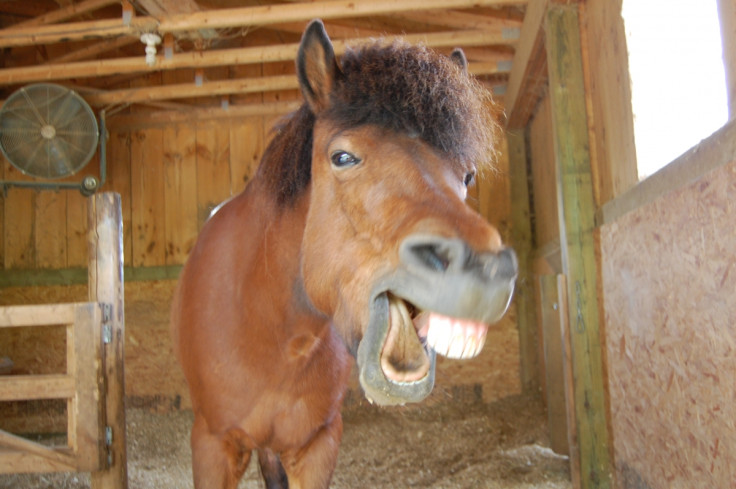Horses found to be able to tell the difference between happy and angry human faces

Horses appear to be able to tell the difference between happy and angry human faces – the first evidence of the species' ability to understand human emotions. When looking at angry faces, researchers found horses displayed a preference for looking through their left eye, which is associated with negative stimuli, and an increased heart rate.
Psychologists at the University of Sussex say this is the first evidence of horses' ability to spontaneously understand human facial expressions from photographs – a trait previously only documented in dogs. Publishing their findings in Biology Letters, the team said understanding whether animals can recognise human signals such as emotions is important, especially in domesticated species.
They showed 28 horses two photographs each – one showing a happy face, the other an angry one. The horses were monitored for behavioural and physiological responses. "It was expected that negative stimuli would induce avoidance behaviour and a left-gaze bias, whereas positive stimuli would induce approach behaviour and either a right-gaze bias or no bias," they wrote. "Moreover, horses' HRs [heart rates] were expected to be higher, to increase faster and to require longer recovery periods in response to negative stimuli."
And their findings showed just that. Negative faces elicited a negative response, with increased heart rate and a left-gaze bias. There was little response to the happy faces, which the authors say is more difficult to interpret.
Warning system?
"This is also seen in dogs and may be because positive stimuli are less salient. The recognition of negative stimuli has particular functional relevance, as it allows individuals to anticipate potential negative consequences," they wrote. "Alternatively, in this study, horses may not perceive either stimulus as overtly positive due to the unfamiliarity of the humans depicted in stimuli and of the experimental set-up."
They said that the findings could be further investigated to look at responses according to familiarity, gender and age. Amy Smith, who co-led the research, said: "It's interesting to note that the horses had a strong reaction to the negative expressions but less so to the positive. This may be because it is particularly important for animals to recognise threats in their environment. In this context, recognising angry faces may act as a warning system, allowing horses to anticipate negative human behaviour such as rough handling."
Karen McComb, a co-lead author on the study, said that their findings may indicate horses have an adapted ancestral ability to read emotional cues in other horses to respond appropriately to human expressions. Or it could be they learn to interpret expressions during their own lifetimes. "Emotional awareness is likely to be very important in highly social species like horses – and our ongoing research is examining the relationship between a range of emotional skills and social behaviour," she said.
More about domestic animals
© Copyright IBTimes 2025. All rights reserved.






















